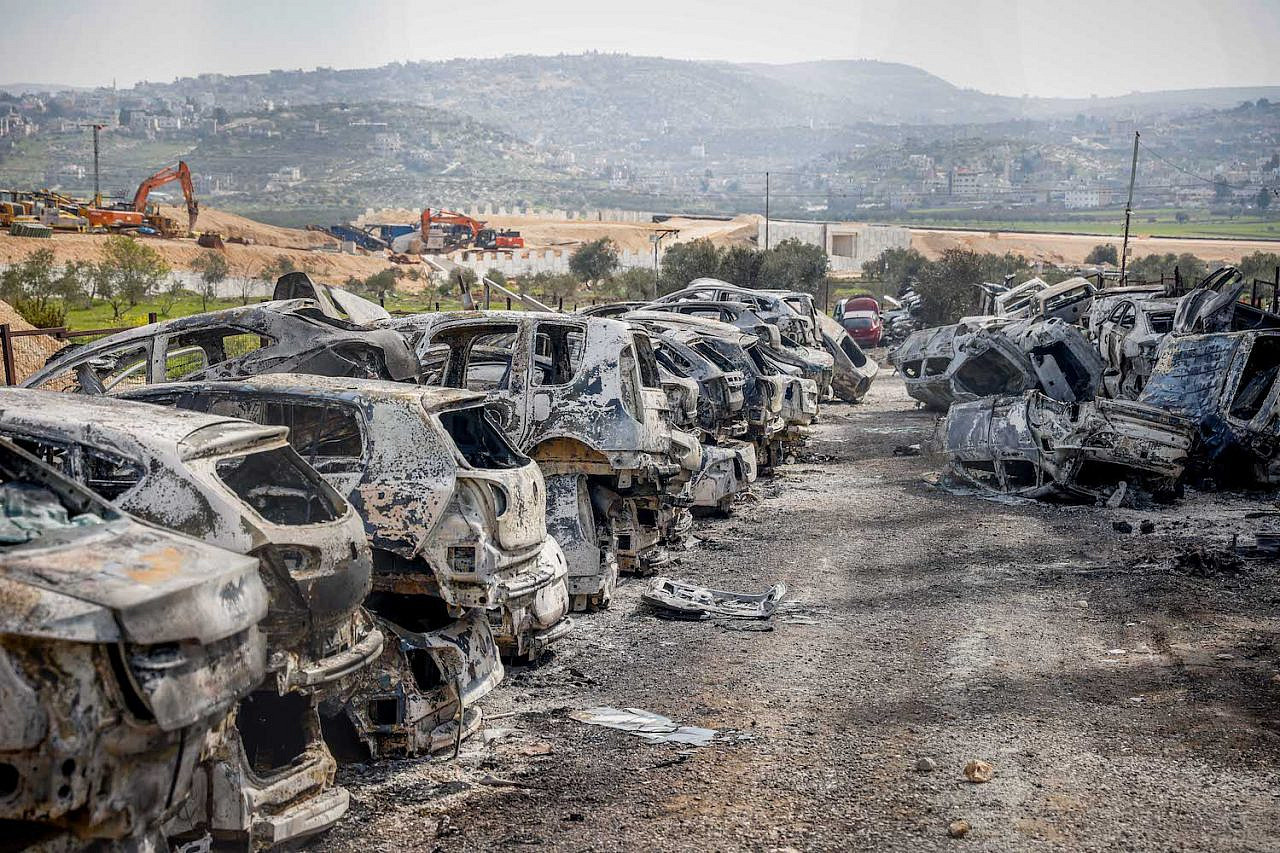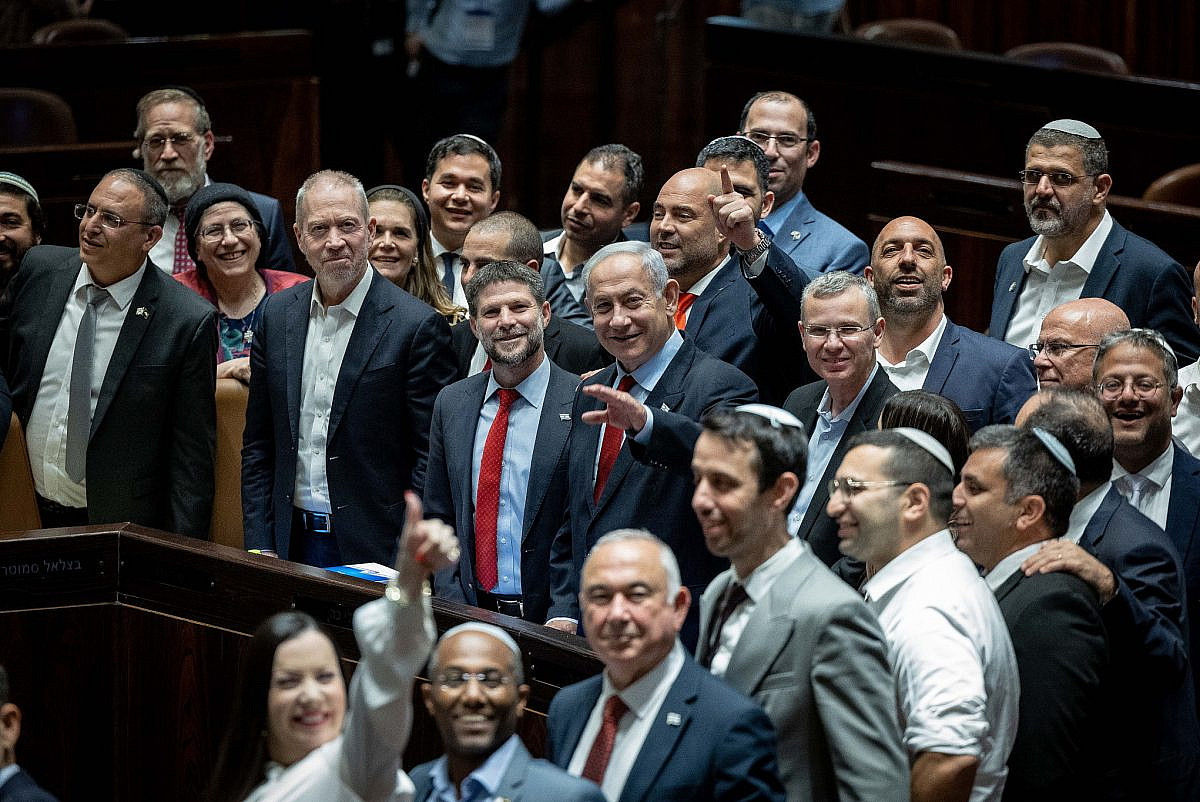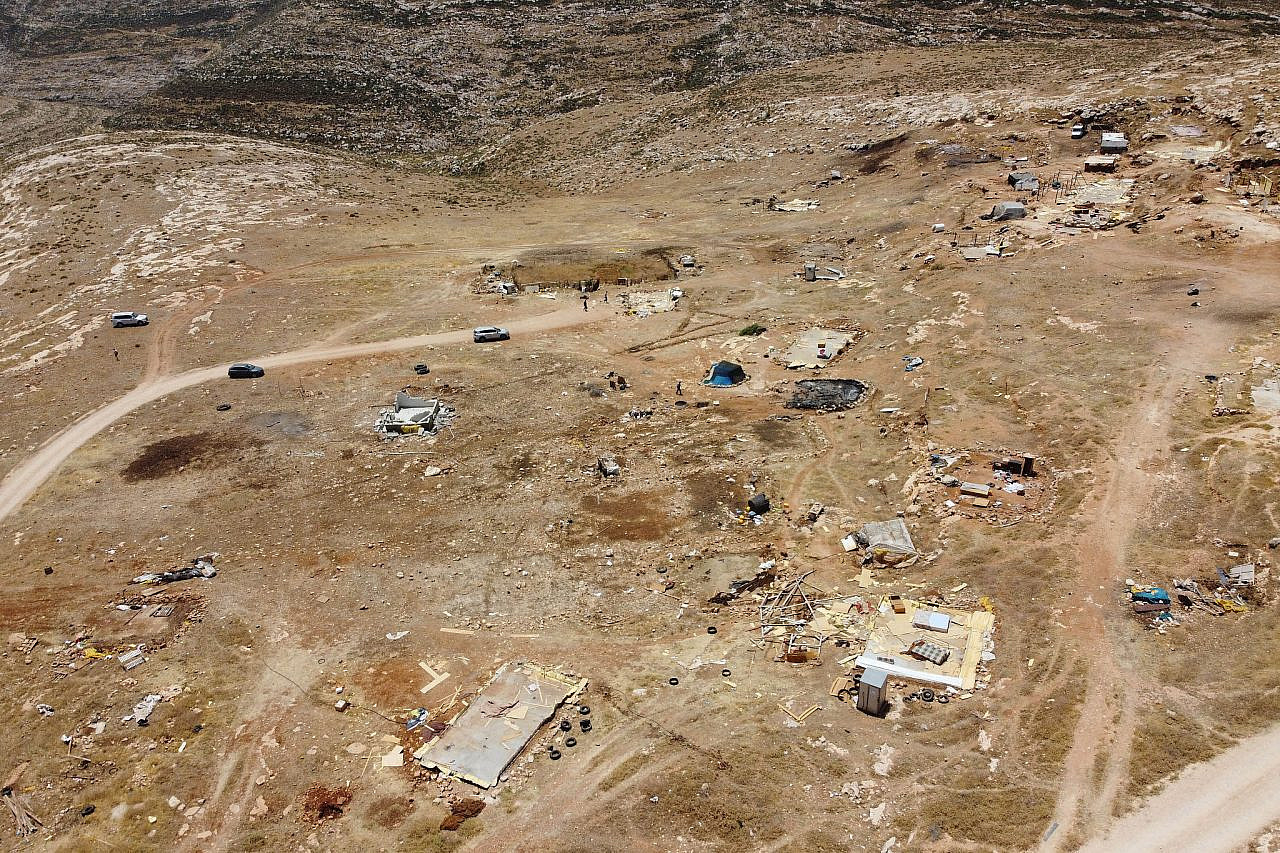This article originally appeared in “The Landline,” +972’s weekly newsletter. Subscribe here.
Since coming to power five months ago, the sixth government to be led by Prime Minister Benjamin Netanyahu has gone through three main phases. The first was the judicial overhaul, which dominated Israeli political life from January to April. The unprecedented resistance from the so-called “pro-democracy” protest movement, which culminated with strikes that brought the country to a complete standstill, forced Netanyahu to press pause and enter negotiations with the opposition, and it remains unclear where exactly these will lead.
The second phase lasted from April into most of May and focused on passing the two-year budget, which — by giving both settlers and the Haredi parties significantly increased funding — has all but guaranteed the government’s stability for the coming two years.
Over the past two weeks, we have been seeing the beginning of phase three: the focus on deepening annexation, increased violence against Palestinians, and putting down all resistance — issues that make up this government’s raison d’être. This phase saw its prelude with the settler pogrom in Huwara, which was incited and supported by senior government officials; the promise to Kahanist National Security Minister Itamar Ben Gvir of a new militia under his direct control that would fight Palestinians and leftists; and an attack on Gaza that killed dozens of Palestinians in the besieged strip.
But the past couple of weeks have shown us what it will look like when the government shifts even more of its focus back to Palestinians. Here is just a partial list of recent developments:

Finance Minister Betalel Smotrich, who is also a minister in the Defense Ministry overseeing civilian issues in the occupied West Bank, announced plans to double the number of settlers in the occupied territories within two years. The army canceled an order preventing settlers from entering the area surrounding Homesh — an Israeli settlement that was evacuated in 2005, but to which settlers have gradually returned over the years and which sits on land belonging to Palestinians — and has facilitated Homesh’s rebuilding, which is illegal even under Israeli law.
Meanwhile, settler attacks on Palestinian villages have escalated and have become almost normalized. The attackers, often guarded — or at least unhindered — by the army, regularly torch homes and vehicles, and sometimes use live ammunition. In the past couple of weeks alone, we have seen such attacks in Burqa, Jalud, and Ein Samia — the last of which led Palestinian residents to tear down their own village and flee.
Last week, a bill to outlaw the flying of the Palestinian flag passed a preliminary reading in the Knesset. On Wednesday, another bill, which suggests reintroducing Shin Bet oversight over Arab teachers and headmasters in schools, also passed its preliminary reading.
On Sunday, the Ministerial Committee on Legislation, which decides the coalition’s position on various bills brought before the Knesset, was scheduled to discuss and expected to support three new proposals. The first is to slap a 65 percent tax on donations from foreign states to Israeli nonprofits, which is the lifeline for many of Israel’s human rights groups (+972 also receives some such funding, which represents around 1 percent of our annual budget). The second aims to annex Jewish “heritage sites” in the West Bank to Israel. The third stipulates that Palestinian citizens who attend Israeli universities and colleges will be banished from all academic institutions should they raise a Palestinian flag or show support for Palestinian armed resistance. All three have, for now, been tabled, following intense pressure from the United States, the European Union, and Israeli universities.
And finally, in just one sentence, Justice Minister Yariv Levin reminded us all that his and Religious Zionist Party MK Simcha Rothman’s plans for judicial “reform” have little to do with democracy and equality, as they like to claim, and everything to do with enshrining Jewish supremacy and unbridled right-wing control. This past week, Levin was quoted saying that “Arabs are buying apartments in Jewish towns,” and that we need “Supreme Court justices who will understand this.” In effect, Levin was signaling to present and future judges that they should be willing to take the necessary action to support segregation.
Most read on +972
Of course, many of these measures are not entirely new or unique to the far-right coalition. We saw increased killing of Palestinians, demolitions of homes, settler pogroms on villages, and the outlawing of Palestinian human rights groups under the so-called “government of change” of Naftali Bennett and Yair Lapid. That government was met with less resistance — both internally and globally — than this one, which is much more outspoken about its goals and actions. To truly understand how we reached this point, we will need to broaden our scope beyond the extremists currently at the helm.
Still, what we are witnessing now is not just more of the same, but a significant historic development. The Israeli public and much of the international mainstream media are still mostly concerned with the paused judicial overhaul, and trying to single it out as an “attack on Israeli democracy” while ignoring its initiators’ motivations and the wider backdrop. But it is paramount to connect the dots between this agenda and the attacks on Palestinians on all fronts. No struggle and no international pressure will lead to democracy if it does not tackle the root causes of both this overhaul and its context of decades of apartheid.






